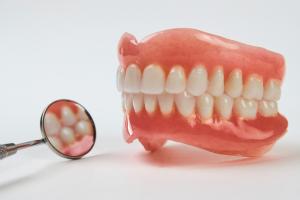
Recovery and Aftercare Following Dental Implant Surgery
Dental implant surgery offers a reliable solution for tooth replacement, providing both functional and aesthetic benefits. However, the recovery and aftercare process is crucial to ensure the long-term success of the implants. Dr. Ronnie Deniger, owner of Crossgates Dental in Slidell, Louisiana, emphasizes the importance of following a structured aftercare regimen to promote healing and achieve optimal results.
"Proper aftercare is essential for the successful integration of dental implants. Patients need to be mindful of their oral hygiene and follow specific guidelines to ensure smooth recovery," states Dr. Deniger.
Immediate Post-Surgery Care
Managing Discomfort and Swelling
After dental implant surgery, it is common to experience some discomfort and swelling. Pain management typically involves over-the-counter pain relievers or medications prescribed by the dentist. Applying ice packs to the affected area can help reduce swelling and provide relief.
Bleeding Control
Minor bleeding is expected following the procedure. Patients should bite gently on gauze pads placed over the surgical site to control bleeding. It is important to avoid strenuous activities and rest as much as possible during the initial recovery phase.
Oral Hygiene and Care
Gentle Cleaning
Maintaining oral hygiene is crucial, but it must be done gently to avoid disturbing the surgical site. Patients should use a soft-bristled toothbrush and avoid the immediate implant area. Rinsing with a mild saline solution can help keep the mouth clean and reduce the risk of infection.
Avoiding Irritants
Patients should avoid smoking and alcohol consumption during the recovery period, as these can hinder the healing process and increase the risk of complications. Spicy and hard foods should also be avoided to prevent irritation and damage to the surgical site.
Dietary Recommendations
Soft Foods
Eating soft foods is recommended for the first few days post-surgery. Options include yogurt, mashed potatoes, scrambled eggs, and smoothies. Gradually, patients can reintroduce more solid foods as healing progresses.
Hydration
Staying hydrated is important, but patients should avoid using straws, as the suction can disrupt the surgical site and slow down the healing process.
Follow-Up Appointments
Regular Check-Ups
Regular follow-up appointments are essential to monitor the healing process and ensure the implants are integrating properly with the jawbone. During these visits, the dentist will check for any signs of complications and make necessary adjustments to the aftercare plan.
Professional Cleanings
Professional dental cleanings help maintain oral hygiene and prevent infections. These cleanings are especially important for patients with dental implants to ensure the health of the surrounding tissues.
Long-Term Care
Maintaining Oral Hygiene
Long-term care involves maintaining excellent oral hygiene practices. This includes brushing twice a day, flossing daily, and using an antiseptic mouthwash. Proper oral care helps prevent gum disease and other issues that could affect the implants.
Regular Dental Visits
Continued regular dental visits are crucial to monitor the condition of the implants and the overall health of the mouth. These visits allow the dentist to detect any potential problems early and provide timely intervention.
Potential Complications and Management
Infection
Infection is a potential complication that can arise post-surgery. Signs of infection include increased pain, swelling, and redness around the implant site. If an infection is suspected, it is important to contact the dentist immediately for appropriate treatment.
Implant Failure
While rare, implant failure can occur. This may be due to various factors, including poor oral hygiene, smoking, or underlying health conditions. Early detection and intervention are key to addressing implant failure and ensuring a successful outcome.
Conclusion
Recovery and aftercare following dental implant surgery are critical to the success and longevity of the implants. By adhering to a structured aftercare regimen, maintaining oral hygiene, and attending regular follow-up appointments, patients can achieve optimal healing and enjoy the benefits of their dental implants.
Dr. Ronnie Deniger and the team at Crossgates Dental are committed to providing comprehensive care and guidance to patients throughout the recovery process. For more information on dental implant aftercare, contact Crossgates Dental.
Morgan Thomas
Rhino Digital, LLC
+1 504-875-5036
email us here
Visit us on social media:
Facebook
EIN Presswire does not exercise editorial control over third-party content provided, uploaded, published, or distributed by users of EIN Presswire. We are a distributor, not a publisher, of 3rd party content. Such content may contain the views, opinions, statements, offers, and other material of the respective users, suppliers, participants, or authors.


